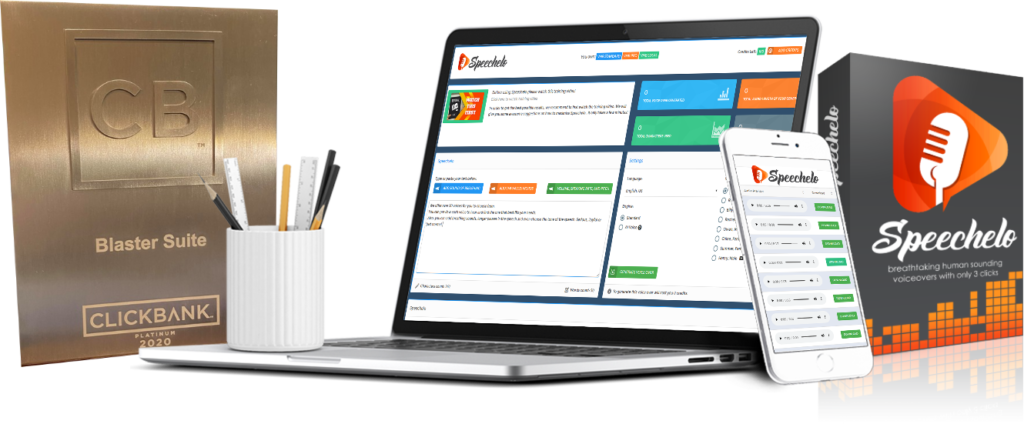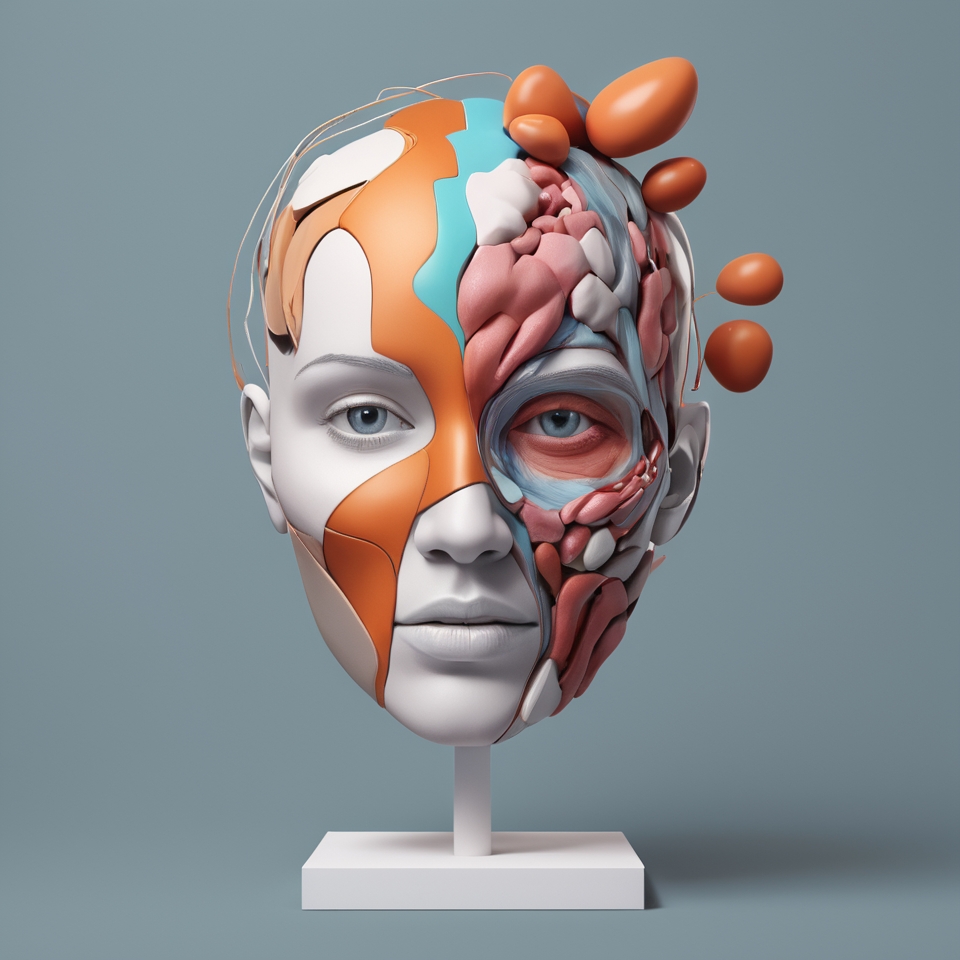AI is transforming healthcare in profound ways, bringing about innovations that are enhancing patient care, streamlining operations, and expanding the boundaries of medical research. Here’s how AI is revolutionizing healthcare:
1. Enhanced Diagnostics
AI-driven tools are increasingly being used to analyze medical images, such as X-rays, MRIs, and CT scans, with high accuracy. Machine learning algorithms can detect patterns and anomalies that may be subtle or overlooked by human eyes, leading to earlier and more accurate diagnoses. For instance, AI is being used in oncology to identify early signs of cancer, improving treatment outcomes.
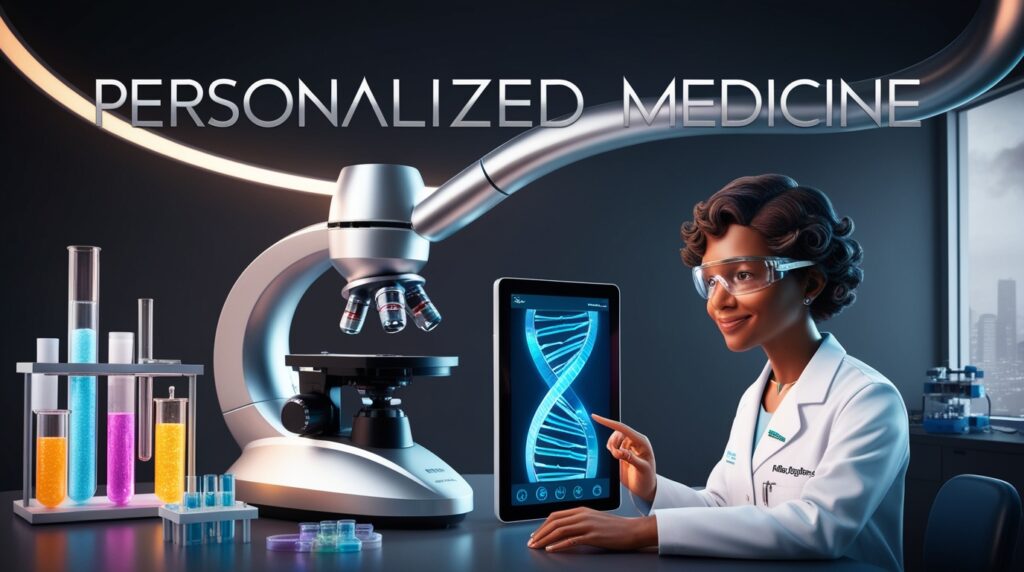
2. Personalized Medicine
AI enables the development of personalized treatment plans by analyzing vast amounts of patient data, including genetics, medical history, and lifestyle factors. This approach, often referred to as precision medicine, allows for more targeted therapies that are tailored to an individual’s unique biological makeup, improving efficacy and reducing side effects.
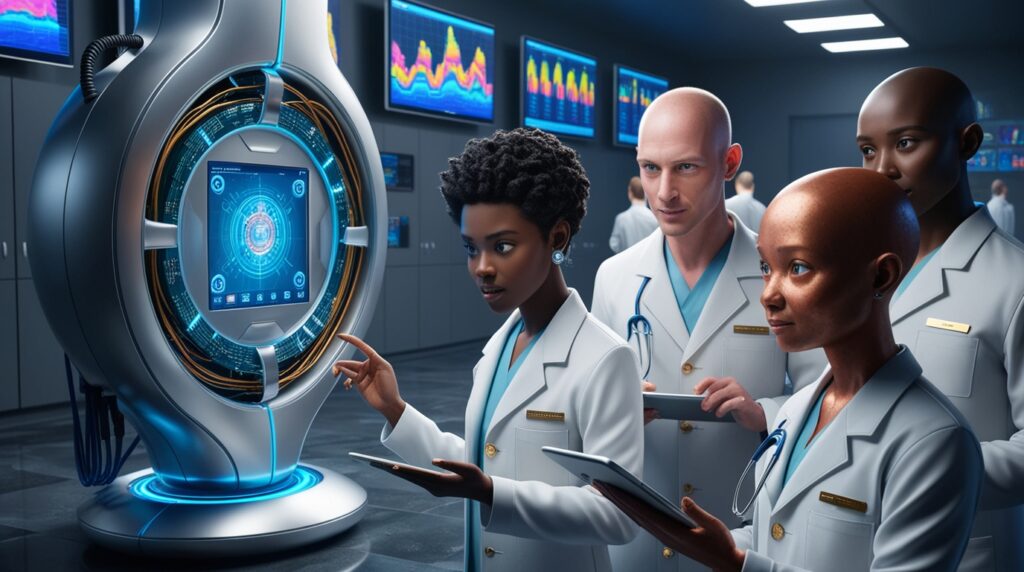
3. Drug Discovery and Development
AI is accelerating the drug discovery process by predicting how different molecules will interact with targets in the body. This reduces the time and cost involved in bringing new drugs to market. AI models can also identify potential candidates for drug repurposing, finding new uses for existing medications.
4. Predictive Analytics
AI is helping healthcare providers predict patient outcomes and identify those at risk of developing certain conditions. For example, AI algorithms can analyze electronic health records (EHRs) to predict which patients are likely to be readmitted to the hospital or develop complications, enabling early intervention and better resource allocation.

5. Operational Efficiency
AI is optimizing hospital operations by improving resource management, scheduling, and logistics. AI-powered systems can predict patient admissions, optimize staff schedules, and manage supply chains, reducing waste and ensuring that resources are used efficiently. This leads to cost savings and improved patient care.
6. Virtual Health Assistants
AI-powered virtual assistants are providing patients with 24/7 access to healthcare information, helping them manage their health conditions, schedule appointments, and receive medication reminders. These assistants can also monitor patient data in real-time, alerting healthcare providers to any concerning changes.
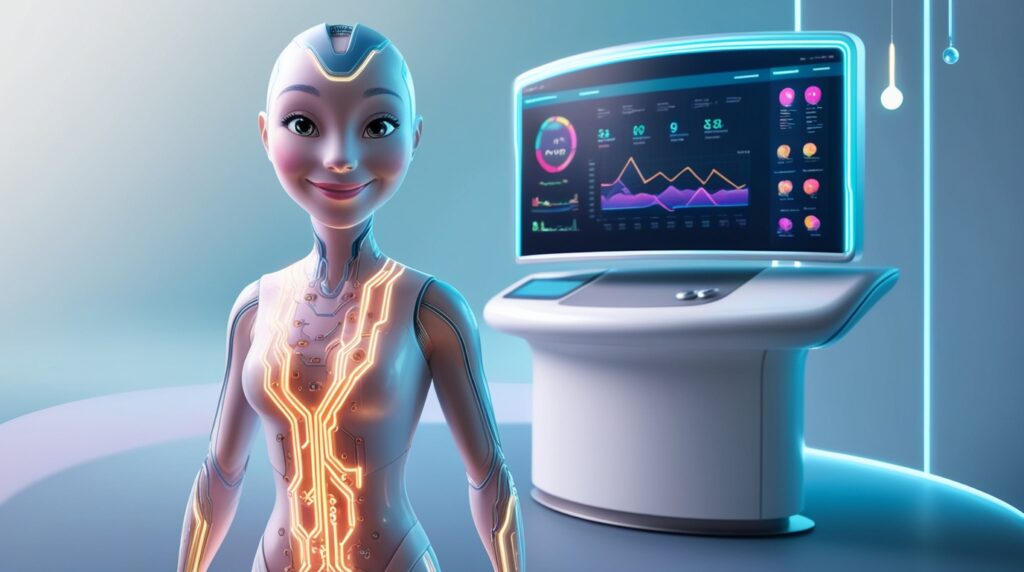
7. Telemedicine and Remote Monitoring
AI is enhancing telemedicine platforms by providing real-time analytics and decision support during virtual consultations. Additionally, AI-driven wearable devices and remote monitoring systems allow for continuous health tracking, enabling healthcare providers to monitor patients with chronic conditions from afar and intervene when necessary.
8. AI in Surgery
Robotic surgery systems, powered by AI, are assisting surgeons in performing complex procedures with greater precision and control. These systems can analyze data from previous surgeries to suggest optimal surgical techniques and reduce the risk of complications.
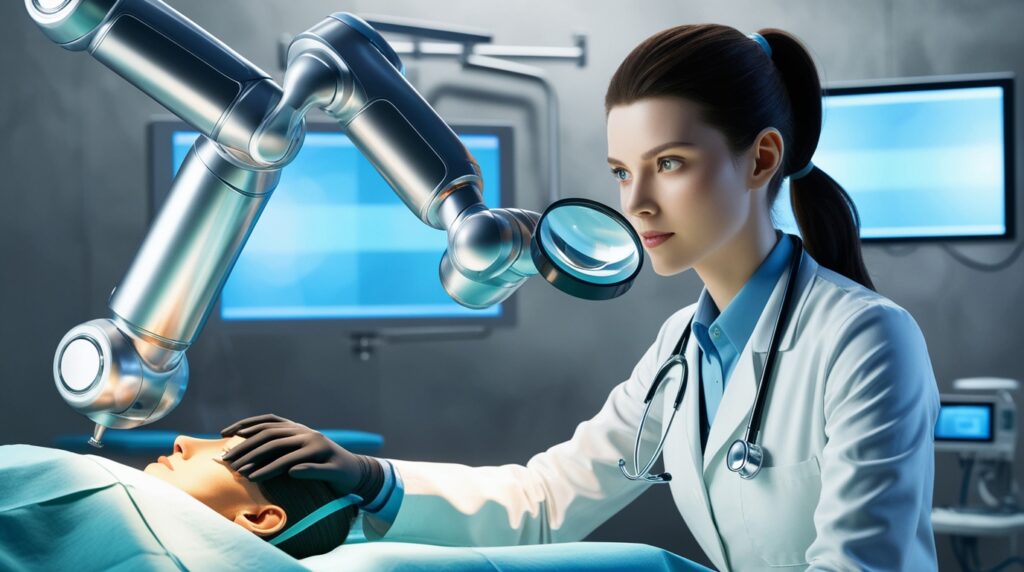
9. Mental Health Support
AI is being used to develop tools for mental health support, such as chatbots and apps that offer cognitive-behavioral therapy, stress management, and early detection of mental health issues. These tools can provide accessible mental health care to individuals who may not have easy access to traditional therapy.
10. Advancements in Genomics
AI is playing a critical role in genomics by analyzing genetic data to identify mutations and predict the likelihood of developing certain diseases. This is paving the way for early detection, prevention strategies, and the development of gene-based therapies.

Conclusion
The integration of AI in healthcare is revolutionizing the industry by enhancing diagnostics, personalizing treatment, improving operational efficiency, and expanding the scope of medical research. As AI continues to evolve, it holds the promise of creating a more efficient, effective, and accessible healthcare system that benefits patients and providers alike.
Instantly Transform Any Text Into A
100% Human-Sounding Voiceover
with only 3 clicks!
